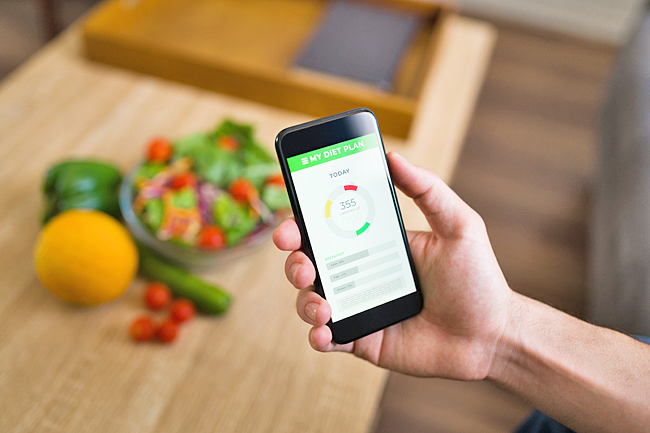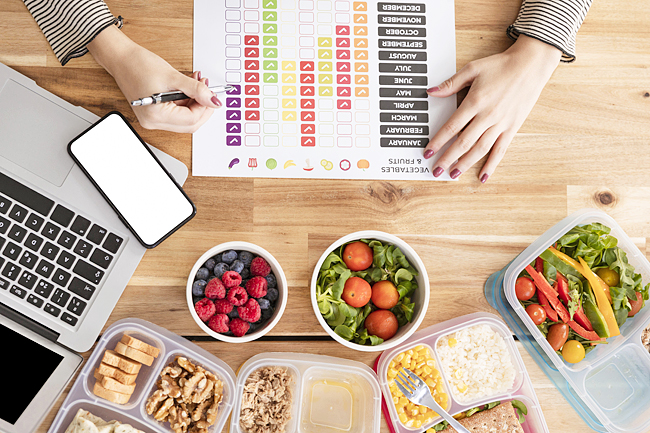THE WASHINGTON POST – Olivia Scholes of Vancouver has polycystic ovary syndrome, or PCOS, a hormonal condition that is helped in part by managing her diet. But knowing which foods to eat or abstain from has been complicated and time-consuming.
Now she has help with her meal planning – an artificial intelligence (AI) chatbot.
Controlling insulin levels through diet is one of the best steps people can take to manage PCOS. She started by asking ChatGPT if it knew which foods were best for people with PCOS and insulin resistance, and the chatbot provided a list of foods that meet the criteria.
Scholes followed up by asking if the system could provide a two-week meal plan that catered to PCOS and insulin resistance, consisting of three meals a day, two snacks a day and desserts without artificial sweeteners.
Within seconds, Scholes had a list of foods, which she then asked ChatGPT to turn into a grocery list.
Although Scholes already knew a lot about PCOS and her diet, she said the bot-generated meal plans make it easier for her to purchase ingredients for a variety of meals in the future.
“Not only did it take the information that I already knew; it put that information in like a tangible space for me,” said Scholes.


ChatGPT – developed by the company OpenAI – was launched publicly in November and reached 100 million active users in January, making it the fastest-growing consumer app in history.
ChatGPT is trained on a large body of text from a variety of sources, such as Wikipedia, books, news articles and scientific journals.
The advanced AI chatbot allows users to enter a text prompt and receive an intelligently generated output that allows for back-and-forth conversations. Other chatbots, such as Google’s Bard and Bing AI chat, are similar to ChatGPT and can plan meals.
Some health and wellness professionals said ChatGPT’s ability to have conversations can be useful for generating meal plans and ideas for people who have specific health goals and dietary needs.
Scholes shared her experience using ChatGPT in a TikTok video. That video now has more than 1.3 million views and a comment section flooded with questions about her experience.
In February, Jamie Askey, a nurse from Lufkin, Texas in the United States made a TikTok video explaining how to use ChatGPT to generate free meal plans and grocery lists that meet various health eating goals.
Her video has had more than 13,000 views on TikTok and people have thanked her in the comments for sharing the tip.
“A great thing about this website is that it’s very conversational,” Askey said of ChatGPT. “So if you are asking it for a specific type of diet, it can give you that.”
Unlike with Google and other search engines, users don’t have to search topics one at a time. The dialogue format makes it possible for ChatGPT to follow an instruction in a prompt, provide a detailed response, and answer follow-up questions.
Users interested in generating meal options might tell ChatGPT “I want you to act as a dietitian” or “I want you to make me a healthy nutrition plan”.
The chatbot then responds with clarifying questions to help it generate an appropriate meal plan. The user may need to provide additional information such as height, weight, dietary restrictions and goals.
Askey, who is a macro-nutrition coach, warns that people with chronic illness should be evaluated by a professional before using a chatbot for meal planning.
“The possibilities are endless when you ask this machine what you’re wanting to know from a knowledge standpoint,” Askey said. “But another thing you have to think about is this is not black-and-white always. There are grey areas and that’s where health history comes into play. That’s where dieting history comes into play.”
The chatbot is not without flaws. One hitch: ChatGPT’s training data cuts off in 2021, meaning some information it provides may be outdated.
For meal planning and nutrition, the program not being able to pull the latest health and wellness guidelines can be troublesome for people with certain health conditions.
The model can also generate incorrect information, providing wrong answers or misunderstanding what the user is asking.
When Scholes asked the chatbot for two weeks’ worth of meals, the chatbot stopped at day eight.
For anyone considering using ChatGPT to help generate a meal plan to reach fitness and health goals, Askey said to double-check the program’s work. “AI, it’s not a person,” she said.
“So you always want to double-check.”
Another concern is privacy. Some health sites and symptom checkers share user health information with advertisers and data brokers.
OpenAI, which makes ChatGPT, said it only saves your searches to train and improve its models, and has said it doesn’t have plans to use chatbot interactions to build profiles of users or advertise.
Some users have also expressed concerns about glitches and bias within the technology that can negatively affect the types of responses it generates. In December 2022, an associate professor of psychology at the University of California-Berkeley Steven T Piantadosi posted a Twitter thread highlighting gender and racial bias in some answers.
OpenAI has acknowledged the potential for bias within AI. It said in a February blog post that many people are “rightly worried about biases in the design and impact of AI systems”. In that post, the company also outlined some of the steps it is taking to eliminate biases.
But bias can sneak into food advice in a number of ways. For instance, a low-carb meal plan might discourage rice, which is a staple in many cultures.
A person who searches for meal plans to help them lose weight might encounter advice that stigmatises obesity.
Scholes said she wonders if existing biases against certain types of people could affect her results.
“Our world is full of biases and full of stuff that isn’t true,” Scholes said. “I kind of worry about the ethics of AI and what it’s built on.”





